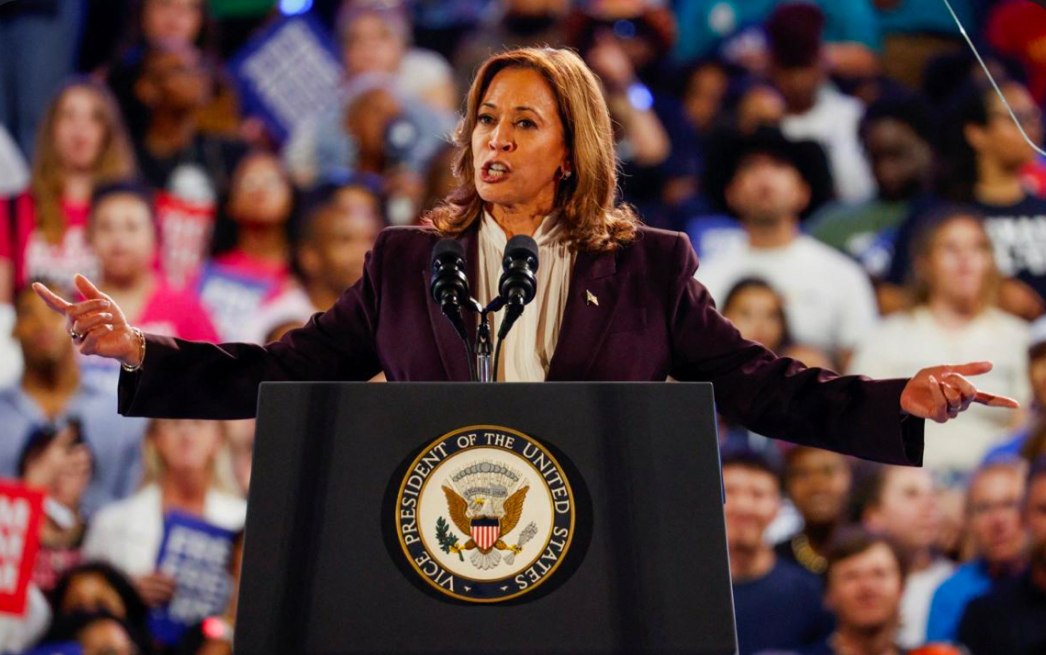During a recent CNN town hall, Vice President Kamala Harris opened up about a personal challenge that many of her critics have pointed to throughout her political career: her tendency to take time making decisions. Harris, known for her thoughtful and deliberate approach to issues, shared that she sometimes struggles with the need to act quickly, preferring instead to gather all the necessary information before making any significant moves. This admission not only shed light on a more personal side of the vice president but also sparked conversation about the implications of her approach to leadership in the fast-paced world of politics.
Harris acknowledged that, as a leader, the pressure to make immediate decisions can sometimes conflict with her natural inclination to thoroughly research and understand the complexities of the situation. “I do tend to want to take my time,” she explained. “I think it’s important to understand all angles before deciding how best to move forward.” While this methodical approach has earned her praise from some quarters, it has also led to criticism from others who argue that in the world of politics, particularly in the White House, swift action is often required.
In the town hall, Harris made it clear that her preference for careful consideration is not a sign of indecisiveness, but rather a reflection of her commitment to being as informed as possible before making impactful decisions. “I believe in the power of research and listening to experts,” she said, noting that her time as a prosecutor and attorney general has shaped her understanding of how vital it is to weigh all evidence before forming conclusions. “When you’re making decisions that affect people’s lives, you have to get it right.”
However, in an era where political leaders are frequently faced with urgent situations—whether it’s responding to a national crisis, handling foreign policy, or addressing domestic challenges—the need for speed can sometimes clash with Harris’s deliberative nature. Critics of the vice president have pointed to instances during her tenure where her cautious approach seemed to delay action, particularly in high-pressure moments. This has led some to question whether her style of leadership, which values thoroughness, can keep pace with the immediate demands of governance.
In the same town hall, political experts weighed in on Harris’s leadership style, with some noting that her thoughtful approach is both a strength and a potential weakness. “In an ideal world, a leader would have the luxury of time to weigh every option,” said one political analyst. “But the reality of modern politics is that quick decisions are often necessary, and in that sense, Harris’s tendency to slow down could be a disadvantage.”
At the same time, others defended Harris’s cautious approach, arguing that the world could benefit from leaders who take the time to fully understand the complexities of the issues at hand. “Sometimes, a hasty decision can lead to unintended consequences,” another expert pointed out. “In those cases, taking the extra time to consider all options might actually save time and resources in the long run.”
Harris’s openness about her decision-making process also highlights the broader challenges faced by women in leadership roles, particularly women of color. Throughout her career, Harris has often had to navigate stereotypes about women’s leadership styles, with critics questioning her assertiveness and decision-making abilities. By candidly admitting her struggle with making quick decisions, she may be challenging those very stereotypes and offering a new perspective on what it means to be a leader.
For some voters, Harris’s willingness to admit her weaknesses makes her more relatable. In a political climate where many leaders are reluctant to show vulnerability, Harris’s transparency stands out. She spoke about the need to balance her natural inclination toward thoroughness with the demands of the office, acknowledging that finding that balance is a constant challenge. “It’s about making the best decision with the information you have, but also understanding that sometimes, the clock is ticking,” she said.
Ultimately, Harris’s reflections during the town hall reveal a deeper, more human side of her leadership style. While some may view her deliberative approach as a hindrance, others see it as a necessary trait for a leader who wants to make informed, responsible decisions. As the nation continues to face an array of challenges, from economic inequality to national security concerns, it remains to be seen how Harris’s thoughtful approach will influence her role in the Biden administration going forward.
